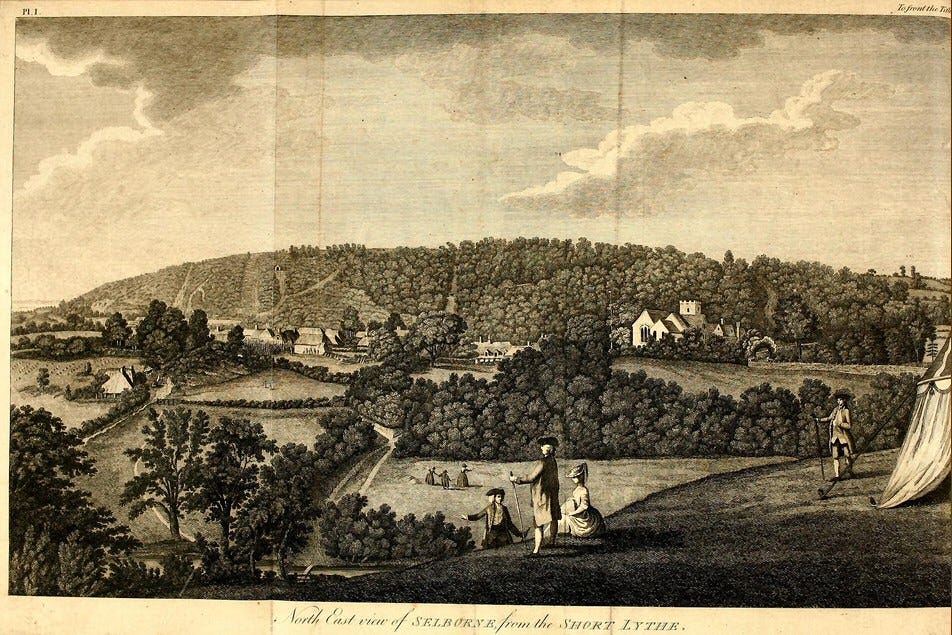'Wasps begin to appear', 1772
… and aphids attack
(Hello, this is Histories, a free weekly email exploring first-hand accounts from the corners of history… Do please share this with fellow history fans and subscribe.)
Those who were walking the streets… found themselves covered with these insects, which settled also on the trees, & gardens, & blackened all the vegetables where they alighted…
I’m having a short summer break from my desk, so this week and next, forgive me if Histories is shorter than usual!
When I’m writing and editing, I have to have silence; but when I’m typesetting books and magazines (the other half of my day job), I often listen to podcasts. Recently I’ve discovered the very calming tones of the novelist and nature writer Melissa Harrison’s podcast. In it she has regular extracts from the renowned 18th century book The Natural History of Selborne by English naturalist Gilbert White (yes, another vicar! meet a flatulent one here, an adulterous one here and a nudist one here).
I’ll come back to White’s book another time, but he also kept a very terse journal, which has been lovingly transcribed online by the animator and novelist Sydney Padua. So this week, I give you just White’s entries for multiple 13th Augusts – I rather like the rhythm of these annual snapshots of his observations…
1768: Sweet harvest weather. Helleborus viridis begins to wither. Brisk gale of wind.
1770: Swifts to be partly gone. Martins congregate.
1772: Some few wasps begin to appear.
1773: Great thunder, & lightening. [sic]
1778: There is this year the greatest crop of wheat in the North-field that ever was remembered.
1780: Ponds are very low.
1781: The pond on Selborne down has still some good water in it; Newton pond is all mud. Many annuals are shrivelled-up for want of moisture. The drought is very great. Hops are injured for want of rain.
1782: Bro. Tho. White & daughter came.
1783: Farmer Spencer of Grange finished wheat-harvest. Mr Pink of Faringdon finished Do. [i.e. ditto] Mr Yalden finished wheat-harvest. Farmer Vridger of Blackmore finished harvest of all sorts.
1785: My Nephew Edmd White’s tank at Newton runs over. On the first of August, about half an hour after three in the afternoon the people of Selborne were surprised by a shower of Aphides which fell in these parts. I was not at home; but those who were walking the streets at that juncture found themselves covered with these insects, which settled also on the trees, & gardens, & blackened all the vegetables where they alighted. My annuals were covered with them; & some onions were quite coated over with them when I returned on Aug. 6th. These armies, no doubt, were then in a state of emigration, & shifting their quarters; & might come, as far as we know, from the great hop-plantations of Kent or Sussex, the wind being that day at E. They were observed at the same time at Farnham, & all along the vale to Alton. Of the conveyance of Insects from place to place, see Derhams’s Physico-Theology. p. 367.
1787: Mr & Mrs Richardson & son came.
1791: Farmer Tull makes a wheat-rick at Wick-hill.
1792: Goose-berries wither on the trees.


I seem to be greedy by ticking most boxes. However, my thirst for most thugs history related has become unquestionable over the past few months!
Maybe, in my mid fifties, I want to finally learn all I can. I am even hoping to start a degree in the next year. All of a sudden, I believe in myself and know that I can do this!
So please sign me up!
Many thanks 🙏